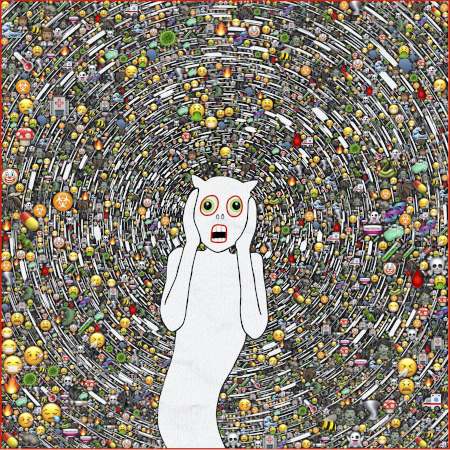"Today's school leavers will have six different careers (and many more jobs) in their working life."

Lessons For Career and Work Life Decisions in a Post-Covid World
There are plenty of things to normally consider when pondering your career and work-life decisions. But in a post-covid world?
What of all those new “decisions” we’ve had to make due to a global pandemic?
Well, they tell another story!
And the big question now is:
What HAVE we learnt – from the many health, social, economic and political responses taken – which have shaped the world over the last twelve months?
Unfortunately, in the now Covid “normal” world of 2021 and beyond, the lessons we have “learnt” vary significantly from one country to the next – even from one state to the next!
Please use your “local” insight to adjust the lessons below to suit your situation 🙂
In the Beginning, it was Border Closures and Immediate Job Losses
Around a year ago Australian international borders were closed to slow the progression of the Covid-19 pandemic.
Many industries suffered immediately as a result of such measures. Aviation, tourism and hospitality were among those most affected. Thousands of jobs disappeared as international and domestic travel ground to an immediate halt!
Twelve months on, many of these jobs are still gone, despite Domestic travel almost getting back to “normal” here. Whether these industries will “recover” if (or when) full travel returns, is another issue.
 Then Cometh the Lockdowns – and Even More Jobs Gone
Then Cometh the Lockdowns – and Even More Jobs Gone
To “flatten the curve” and slow the progression of the virus, entire cities and regions were sent into “lockdown”. People were instructed to stay at home!
At varying times, state borders were also closed to contain local “hotspots”.
Limits were imposed on the total numbers of people allowed to “gather”.
The result?
Industries that suffered immediately were those that focussed around people gathering in large numbers. These included events, festivals, entertainment, sports, hospitality, tourism, restaurants, accommodation, foods, arts, recreation.
If you are under 24 in Australia, youth unemployment (13.9% Jan 2021 for 15-24-year-olds) has been more than double the general unemployment rate (6.4% Jan 2021) (Rates from ABS) And that’s because young people have greater exposure in the sectors that were hit most by the pandemic. And these included retail, hospitality, events, fitness and entertainment. They also have higher rates of part-time and casual employment.
Even More Losses in “Non-Essential” Jobs
As limits were lowered and lockdown rules increased, even more jobs were lost.
“Non-essential” services such as pubs or clubs, or activities and venues where social gathering/contact could be a “problem” (gyms, beauty therapy, wedding receptions, churches, etc.), were closed down. Often for weeks at a time.
Luckily our Australian definition of “non-essential” did not include most business operations such as construction, manufacturing and many retail outlets.
Even do, there are still (March 2021) a swathe of confusing restrictions on activities, including mask-wearing requirements, which vary from state to state.
Online retailing grew massively during the lockdowns, and apparently Amazon become a “Pandemic giant”!
All those bored people who were locked down found new ways to spend their money – money they probably didn’t have or NEED to spend 😉
For the LOCAL bricks and mortar retailers in the high street, things look very bleak! Online shopping could well be a sign of their impending death in a post-pandemic world!
If you ran a business, you might be lucky enough to still be “in business” after months of this. But only if you didn’t rely on the general public to earn your income. Unless, of course, you were able to “adapt” your business model and come up with new and innovative ways of doing business. Like restaurants that introduced takeaway food, or churches who took their worship online.
While Many Floundered, Some Occupations Prospered
Millions of jobs were lost worldwide! But some have flourished as a result of the pandemic! Health and medicine have done very well! Strange about that!
In Australia, Mining, agriculture, manufacturing, construction, supermarkets, technology, and wellness have also been positively affected.
Logistics and transport of goods around the country have also performed well.
Many people discovered the benefits of working remotely, thanks to the virus! And now a large chunk of them don’t want to go back to their offices. With the time and cost savings associated with it, who can blame them? 🙂
Companies have also found significant cost-saving opportunities by allowing employees to work from home. So much so, that remote workers could become a regular post-pandemic thing.
Aussies were also quite happy connecting with medical personnel remotely with 40+m telehealth consults since it started in March 2020. It was recently announced that the telehealth service is to become permanent.
 Supply Chain Issues
Supply Chain Issues
The worldwide shortage of toilet paper at times wasn’t the biggest supply problem with the pandemic! What’s WITH that? LOL
No. Over the past decade or so, a lot of manufacturing and production was moved offshore! All in the name of globalism.
However, during the pandemic, that resulted in a shortage of “locally” sourced supplies! Sadly, that even included almost 89% of our day-to-day prescription medications.
Hopefully, countries are now looking at their trade agreements to see what goods and services can come “back home”. This can lessen their reliance on other countries. It will also address the international shipping issues.
Maybe they can create substantial and regular manufacturing and supply of LOCAL essential resources into the future?
IF it happens, it opens up a whole new world of opportunity in the new jobs created from that surge in local manufacturing.
Big Cities Rejected
It didn’t take the general public long to realise they were better off outside of the big cities!
In Australia we’ve seen a 200% increase in net migration from capital cities to regional areas.
That’s a steady migration of people cashing up and moving away from areas that were repeatedly locked down. Or maybe moving away from possible “hotspots”.
They’re headed to smaller, “safer” regional or even other state, towns and cities! And who can blame them! The quality of life “in the bush” is far better!
But regional employment opportunities have never been great!
So those who can work “remotely” might be the people this opportunity is best for initially.
Until the rest of the world catches up – hopefully well before 2030 😉
 Future Health Issues – A Bigger Problem?
Future Health Issues – A Bigger Problem?
Apart from the immediate virus problems, other severe health issues will continue to “plague” us into the future.
These have come about mostly due to how we “dealt” with reducing the spread of the virus.
So how DID we do that?
By shutting down businesses! Which made people unemployed! By shutting down their livelihoods! With excessive legislation! And by locking the people up!
Removing one of the strongest motivations the people had – the routine and familiarity of their work – meant many lost their best reason for living – their work-life!
As if the occasional suicide by lockdown wasn’t enough, the ongoing and always-changing public health “guidelines” imposed on the population created another level of concern.
Face it – the majority of the world’s population are now just treading water! They are STILL waiting for a sign that things might return to normal!
And as it turns out, this “waiting” for something to happen could become more of a problem than the actual virus itself has been.
It’s the uncertainty of not knowing what’s going to happen.
So many people are:
– unemployed, or
– under-employed, or even
– under “house arrest”
with lockdowns. And they lack that basic human need to have a “purpose” to exist!
The anxiety is real! Dealing with all this uncertainty about the future IS real!
And with so much time to fill, where do they turn to be “entertained”? To kill time until things are back to normal?
They turn to even MORE of the stuff that creates even more anxiety in the first place! They seek the dopamine hits and false realities you can find on TV, Netflix, online games, social media, etc.
 UN-Social Distancing
UN-Social Distancing
While Social Distancing might help us all to “stop the spread”, the whole idea of wearing face-masks and staying away from other people is harmful.
It is harmful because it denies us the social contact that “normal” humans need to stay healthy – with or without a pandemic!
I’m sorry, but to me the jury IS still out on the effectiveness of face-masks! They have only ever been useful for someone who already HAS the sniffles! A face mask helps prevents THEM from passing the germs on, but only when used properly. And good luck with that 🙂
Day after day, we are constantly barraged with endless news bulletins and press conferences. And our politicians are STILL urging us to all “do the right thing” – when 99.9% of the population ARE!
Along with the threats of punitive measures on those of us doing the right thing – to shame those being “naughty” to behave – is also not good for the soul! Face it – it didn’t work in school, so why do they think it will work in a pandemic?
Thankfully in Australia so far, the “pandemic” has cost under 1,000 lives. We’ve been luckier than most other countries. But that’s mainly due to our physical isolation and early border closures.
It’s not that good here. But I can only imagine what life must be like in countries with much higher cases and deaths!!!
All these mental health issues resulting from:
– job losses,
– the effects of ongoing social distancing restrictions, and
– uncertainty for the future,
will take time and money to address and cannot be ignored!
Dealing with the mental health issues associated with depression and anxiety will become very important as people “recover” from the economic and social problems caused by the pandemic and our response to it.
Do you see any future career opportunities here?
The Economic Response
Governments around the world have thrown bucket loads of “support” at this virus!
Initially, that was to address the direct health issues arising from the pandemic.
However, much of this support has been “economic”. Support designed to financially “stimulate” the country’s economy! Financial “support” to hopefully prevent a country-wide (or worldwide) recession.
And this money WILL need to be repaid! Well into the future!
It’s something taxpayers will be paying off for generations. It will directly affect future political policy and action.
And it’s also something that will NEED a political response that requires our politicians to come together with BI-PARTISAN strategies to deal with it.
But since they are so used to sticking their party issues where they are often not needed, is that even possible?
The “Political” Response
In Australia, the initial bi-partisan political response to the crisis was quite surprising – and comforting – at the time: ) The bi-partisan “National Cabinet” was an innovative idea. It is still operational twelve months later.
Despite this, it didn’t take long for the political factions to go back to playing their “normal” games – despite these being abnormal times!
National politicians decided to keep playing politics! And State politicians often ignored what the National government may have advised,
It certainly doesn’t help when even LOCAL politicians make pandemic proclamations! Local “laws” that contradict sensible, common-sense guidelines already been put in place by their own state or national governments!
And that’s not just here in Australia!
Political leaders worldwide have continued to put party politics and political “issues” ahead of “dealing” with the actual crisis!
The passing of bills providing immediate support for Covid have been watered down with additional political manoeuvres that have NOTHING at all to do with the pandemic.
And some of the measures taken as a result have no doubt prolonged the situation far longer than needed!
These “politicians” seem to have failed to remember that, in times of crisis, the people look to their leaders for… well, “leadership”. Many people feel let down as their governments continue with their “political” antics.
According to Dr Martin Parkinson AC, Chancellor of Macquarie University, the rebuilding task will require exceptional leadership, requiring all sides of politics to try and come together in the national interest. He said…
“[It] is going to require us to mobilise our community in a way that we have not done… outside of a war-time footing.”
Methinks we don’t have politicians of the required calibre for that to happen! We need more of a “statesman” to lead us and inspire confidence to help us get over this!
If you need a reminder, here is Wikipedia’s definition of what it means to be a statesman…
“A statesman or stateswoman is a respected, skilled and experienced political leader or figure. In most respects, a statesman is the opposite of a politician. Politicians are thought of as people who will say or do anything to get elected or to gain power. A statesman is someone who does everything for the common good of the people he or she represents. To call a person a statesman is a mark of high regard for that person’s integrity. To call someone a politician usually implies the person is worthy of very little esteem.”
2020 : The Year of Mis-Information
Was that a statesman? Or stateswoman? Or statesperson? Or perhaps even a statespersibling???
And herein lies even more of the problem – ongoing quibbling and nit-picking about non-related, possibly woke but certainly “politically-correct” B.S., instead of dealing WITH THE MUCH BIGGER PROBLEM at hand!
Over the past year, this has become even more self-evident! Certain parties continue to demand that any non-mainstream “discussion” on the topic is only “misinformation”! And as such, this type of propaganda should not be allowed!
Look – I can understand the need to limit the spread of propaganda during war-time! And while this IS war, it is NOT a war against other citizens!
But it’s a war against a dam virus!
2020 has become known as the “The Year of Mis-Information”, with the amount of B.S. being spread to all corners of the globe by mainstream media, the Internet, Big-Tech, and of course, “conspiracy” theorists everywhere!
I wouldn’t be surprised if this article is classified as such, as it dares question some of what has happened over the pandemic period.
But playing “politics” is NOT the response needed nor desired!
Unless of course you have some “agenda” to support, and now we’re taking things to a whole new conspiracy theory level!!!
Beyond 2020 – What will be “Normal”?
Despite the best intentions, any “response” to the Covid-19 pandemic could NOT have been properly pre-planned. Even the official disaster prep document/guidelines that did exist, often didn’t quite pan out as intended.
Worldwide, countries were taking knee-jerk reactions to situations as they arose! It appears that some are still doing just that, even twelve months later!!!
Let’s face it! We (worldwide) don’t have a CLUE what we’re doing!
I can’t imagine it will be any different for any “recovery” process!
Coming out of lockdown and getting “back to normal” is a HUGE problem for ANY nation as far as economics, employment, and mental health issues are concerned.
As we’ve already seen, most recovery measures (or best “guesses” on what we should do) are happening very, very slowly!
Is that because they now realise that many of the decisions made earlier were not “correct”? And now, more “thought” should go into recovery decisions… lest their political future is in doubt?
So what’s going to be “normal”?
Not the things we have been used to previously, that’s for sure!
Meanwhile… What About You?
Perhaps you should start by looking closely at all the things that HISTORY shows DID happen in your country/state/region! And then decide how much impact all of that had on you. Or could have had on you.
Financially, the more SAVINGS you have, the better your ability to handle prolonged periods of “disaster”! To save more, look at the amount of SPENDING you do and ask how essential it might be. You’ll probably find that you could reduce expenditure on lots of unnecessary things!
However, to help with any national economic recovery, your governments WILL encourage you to SPEND money! Just watch what you actually spend it on.
You need to be a good prepper and create your own plans to deal with a future pandemic and the associated effects. If you don’t prepare and prefer to rely on the “government” to help you… Well, you could be waiting for a looooong time!
Career-wise? Maybe if you were looking for a career as a “remote” working mental health professional living in regional areas of Australia, you might be a lot safer from any virus and employable for many years to come 🙂
Or perhaps you might be involved in the support (mainly technological perhaps) of such professionals?
Finally – consider moving to a place like Australia where the quality of life is excellent! And we’re also relatively “immune” from such viruses due to our physical isolation from the world.
Look me up when you get here 😉 I’d love to say “Guddai mate”!
And don’t forget to find out about all the other factors that can play a part in your career and work-life decision making – they are just as important!



 Home
Home